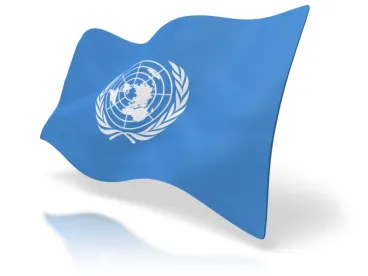Today, the United Nations Environment Assembly adopted a broad negotiating mandate for a new legally binding international agreement on plastic pollution. Inger Andersen, the Executive Director of the United Nations Environment Programme (UNEP), heralded agreement on the resolution as “the most important international multilateral environmental deal since Paris.” Under the mandate, countries are expected to adopt a final agreement by the end of 2024 that includes legally binding obligations and voluntary commitments to address plastic pollution across the full product lifecycle.
The Negotiating Mandate
The final resolution requests the Executive Director of UNEP to convene an intergovernmental negotiating committee (INC) to develop an international legally binding instrument on plastic pollution “based on a comprehensive approach that addresses the full lifecycle of plastic.” The instrument is to include provisions to “promote sustainable production and consumption of plastics, including, among others, product design, and environmentally sound waste management, including through resource efficiency and circular economy approaches. . .” The new agreement is also expected to include provisions to “promote national and international cooperative measures to reduce plastic pollution in the marine environment.” Countries will also seek agreement on provisions focused on awareness-raising, education, and information exchange, among other obligations.
The instrument is to allow for country-driven approaches and flexibility taking into account national circumstances. These are to include national action plans to work towards the prevention, reduction, and elimination of plastic pollution and may include both binding and voluntary approaches.
Recognizing that some aspects of plastic pollution are already addressed under other multilateral agreements (e.g, MARPOL 73/78 on the Prevention of Pollution from Ships, the Basel Convention, and the Stockholm POPs Convention), the resolution seeks to promote coordination and cooperation of other conventions, instruments, and organizations. More broadly, the agreement is expected to encourage action by all stakeholders, including the private sector, and it will include arrangements for capacity building, technical assistance, technology transfer, and financial assistance, among other terms.
The negotiating mandate leaves many key issues to be worked out by the INC, including, for example, what qualifies as a “plastic,” how to address microplastics (which the resolution includes as plastic pollution), and the types of obligations that are to be legally binding and those that are best addressed through national action plans or voluntary measures. The relationship of the new global plastics agreement with existing environmental agreements governing chemicals and plastics recycling will also need to be addressed. Once adopted and ratified, the resulting obligations under a new plastics treaty will likley inform national environmental laws and policies governing the production, use, and recycling of plastic products in countries worldwide. As a result, companies at all stages of the value chain that make or use plastic or manage plastic waste are likely to be affected by this agreement, even if the U.S. does not immediately become a party to the treaty.
Broader Context of Addressing Plastic Pollution
The launch of treaty negotiations builds on swelling international concern about plastic pollution, including the particular challenges posed by marine plastics debris. In recent years, legislation has been enacted in several countries and in some U.S. states to combat plastic pollution and increase recycling. These measures include bans on certain single-use plastics, new extended producer responsibility mandates, and requirements for increased use of recycled content in new products. In December of last year, the National Academy of Sciences (NAS) issued a report on the U.S. role in Global Ocean Plastic Waste that may also inform U.S. actions on marine plastic pollution at both the national and international level.
The UNEA resolution notes the recent efforts made by governments and international organizations, including the G7, G20, and the Global Partnership on Marine Litter, as well as the initiatives related to the Basel Convention. In 2019, parties to the Basel Convention adopted amendments expanding controls and trade bans applicable to most types of plastic wastes shipped across borders for recycling (described further here). The new plastics treaty is expected to complement this past work and promote coordination and cooperation across the different initiatives.
Next Steps for the Treaty Negotiations
An ad hoc open-ended working group (OEWG) will meet in the first half of 2022, most likely in late May, to prepare for the work of the INC. At that meeting, countries will discuss the timetable and organization of work for the INC. From there, the first INC meeting should occur by the end of 2022, with two additional meetings expected in 2023 and 2024 each. Business and environmental stakeholders will have an opportunity to participate as observers in the OEWG and INC meetings, consistent with UN rules. The resolution requests a report on the progress of the INC by the 6th session of UNEA, which will occur in February 2024.
The resolution establishes the ambition for the INC to complete its work by the end of 2024. Following adoption of the treaty, further evolution of the agreement and its obligations would occur through meetings of the parties after its entry into force.






 />i
/>i

